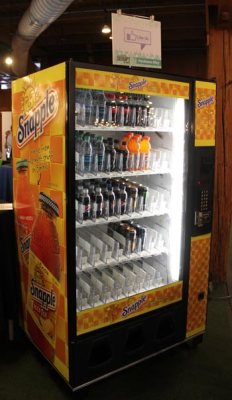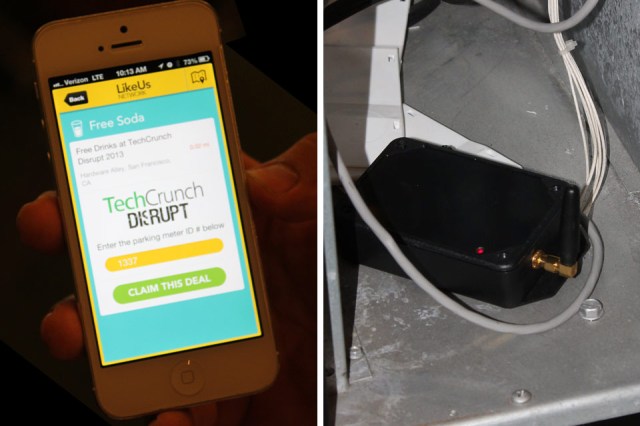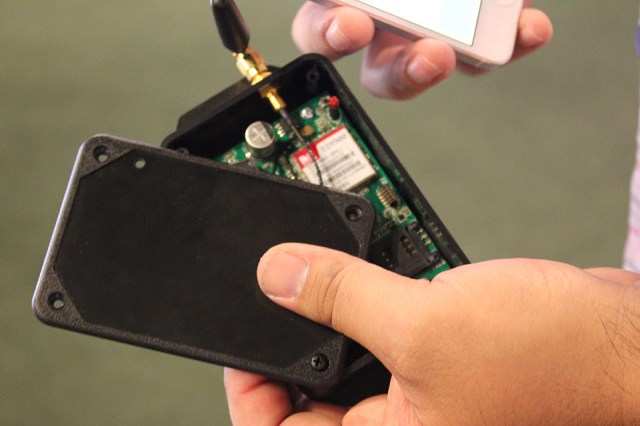What is this? An ordinary vending machine you say? If that was your guess, you would be wrong, but it would be understandable why you might not notice anything special about it. That’s because, on the outside, this looks just like any other plain-Jane vending machine. No special screens or tap zones or NFC chips or anything like that grace its exterior, yet this machine can accept mobile payments from PayPal or Google Wallet.
How? Well, it has a special device inside of it — conceived and developed by Like Us Network‘s Ray Hernandez and Keyston Clay — that hooks up to the existing hardware inside and communicates wirelessly to accept payment and add credit from PayPal and Google Wallet. Other payments platforms are being planned as we speak.
Using either a smartphone app they developed or a mobile website (in order to identify a vending machine ID and to close the loop on the transaction) the credit is added to the machine when authorized. Pow! Your drink pops out just like you slid in a crisp dollar bill (or conversely like you struggled for over 3 minutes trying to unfold a bill that could be mistaken for a spitwad).
Outside the transactional nature of the payments process, there is also a loyalty play built in. The app can also tabulate loyalty points for sharing your purchase and execute other trackable activities. In one scenario, the team is investigating variable product pricing depending on the influencer status of the purchaser. For example, someone with a high Klout score might get an item for a reduced price or possibly even for free if they agree to broadcast their purchase. They are even considering geo-fencing some vending units to broadcast their location for impulse purchases. Pretty smart.
There have been many concepts over the years, mostly international, that have attempted or roll out alternative payments abilities for vending machines, but many have required new interfaces, hardware changes or payments methods that are not agnostic and that can add considerable capital expense to a deployment. That kind of expense is notorious for stunting a roll out and stifling innovation.
But the beauty of Like Us Network’s approach is that it is plug and play. You drop their little wireless node into the vending machine, hook it up to the old-school chip board inside and mobile payments are enabled. No external alterations to the machine itself are required.
Monetization
Obviously it could be difficult to mark up items for sale, but the team are considering a few options. They are investigating a convenience fee for consumers or possibly data fees to the vending owners for the cloud ability of their node.
What pops into my mind as a viable option for monetization would be to simply take a cut of any (and only) purchases where the payment is facilitated by the system. I mean, that purchase might not have happened otherwise so the cut could be justified.
In general, I think their concept is a great idea, but who cares what I think? What I really want to know is “what does Mark Cuban think about it?” As it turns out, he actually has an opinion about it and, in fact, is an investor. Mark has invested $75,000 so far in the Like Us Network device.
How Mark Cuban came to be involved as an investor is an interesting story all by itself. Mark and Ray Hernandez came together during a freak accident at a gym where a man working out had a pacemaker “event” and fell off a treadmill. Both Cuban and Hernandez and some other good folks, came the man’s aid and afterward, conversation took place and the concept got onto Mark’s radar. He advised Ray and Keyston and now here we are at the concept’s launch at TechCrunch Disrupt SF 2013.


